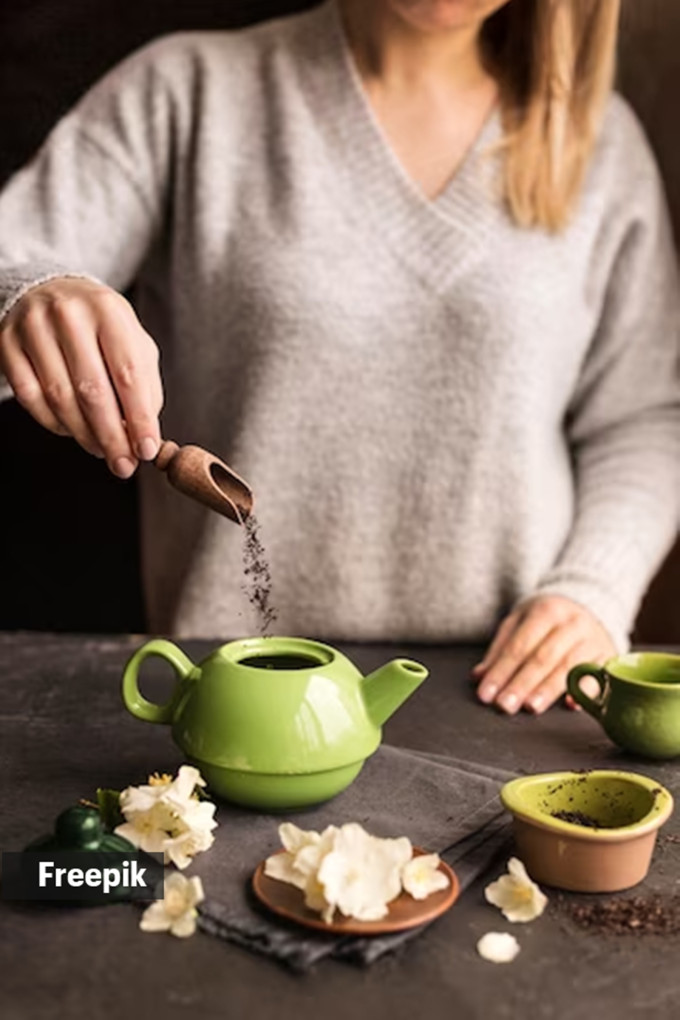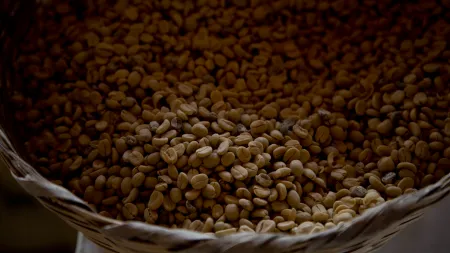Ditch the tea bag: Embrace loose leaf tea for a healthier, tastier brew
For tea enthusiasts across the world, the debate between loose-leaf tea and tea bags is more than just a matter of preference — it’s a discourse on the quality, aroma, flavour, and immersive experience. While those looking for convenience readily opt for the familiar tea bag, the richness and depth offered by loose tea leaves often cannot be matched any other way.
Digital creator Bobby Parrish comes from the same school of thought. In a recent post shared on Instagram, he tells his followers that he prefers loose-leaf tea over tea bags, due to their “superior taste and quality.” Additionally, he says, tea bags can be harmful to health because they are made of “bleached chlorinated paper or plastics and rayon” which release toxins that can “leech into your cup of tea.”

View this post on Instagram
A post shared by Bobby Parrish aka FlavCity (@bobbyparrish)
Agreeing with Parrish, consultant dietician and diabetes educator Kannika Malhotra, says, “Loose leaf tea allows for fuller infusion, potentially releasing more antioxidants, vitamins, and minerals compared to tea bags. Think of it like this: the more surface area the leaves have in contact with water, the greater the release of beneficial compounds.”
In terms of the quality, she says that loose leaf tea offers more control over quality. You can choose whole leaves, known for higher concentrations of nutrients, whereas tea bags often contain fannings (broken tea particles) which may have slightly lower nutrient content.
She further explains that according to studies, loose leaf tea might have higher levels of antioxidants like flavonoids compared to tea bags. These antioxidants can help combat cell damage and reduce the risk of chronic diseases. However, while the potential for more antioxidants exists, she adds, the actual difference might be subtle for casual tea drinkers.
Processing methods of loose leaf tea versus tea bags
Malhotra says that processing plays a big part in determining the quality of tea that you are consuming. She suggests the potential reasons behind loose leaf tea faring better in this department as well:
- Minimal processing: Loose leaf tea often undergoes minimal processing compared to tea bags. This can help retain more of the tea’s natural health benefits.
- Crushing can affect content: Tea bags sometimes use crushed or broken leaves (fannings) which may have been exposed to more air, potentially leading to some nutrient degradation.
 Consultant dietician and diabetes educator Kannika Malhotra, says, “Loose leaf tea allows for fuller infusion, potentially releasing more antioxidants, vitamins, and minerals compared to tea bags.” (Source: Freepik)
Consultant dietician and diabetes educator Kannika Malhotra, says, “Loose leaf tea allows for fuller infusion, potentially releasing more antioxidants, vitamins, and minerals compared to tea bags.” (Source: Freepik)
Advantages in choosing loose leaf tea over tea bags beyond the nutritional aspect
Malhotra says that there are other benefits to consuming it. While both loose leaf and tea bags offer health benefits, she asserts, loose leaf tea has the potential edge in terms of nutrient content, variety, and a mindful tea experience:
Mindful moment
The loose leaf tea ritual, from selecting leaves to steeping, can be a calming and mindful experience, promoting relaxation and well-being.
Variety is the spice of life
Loose leaf tea offers a wider variety of tea types and blends to explore, allowing for a more personalised tea experience.
Sustainability matters
Some tea bags have non-biodegradable materials. Loose leaf tea often uses less packaging, making it a more eco-friendly option.
Microplastic concerns
Some tea bags are sealed with nylon or polypropylene, which are types of plastic. Studies suggest these materials might release microplastics into the brewed tea, especially with prolonged steeping in hot water. These microplastics can potentially accumulate in the body and their long-term health effects are still under investigation.
Bye-bye biodegradability
Many tea bags are not biodegradable, meaning they decompose very slowly and contribute to landfill waste. This is especially concerning if the bag contains non-biodegradable materials like polypropylene.
Disclaimer: The copyright of this article belongs to the original author. Reposting this article is solely for the purpose of information dissemination and does not constitute any investment advice. If there is any infringement, please contact us immediately. We will make corrections or deletions as necessary. Thank you.





